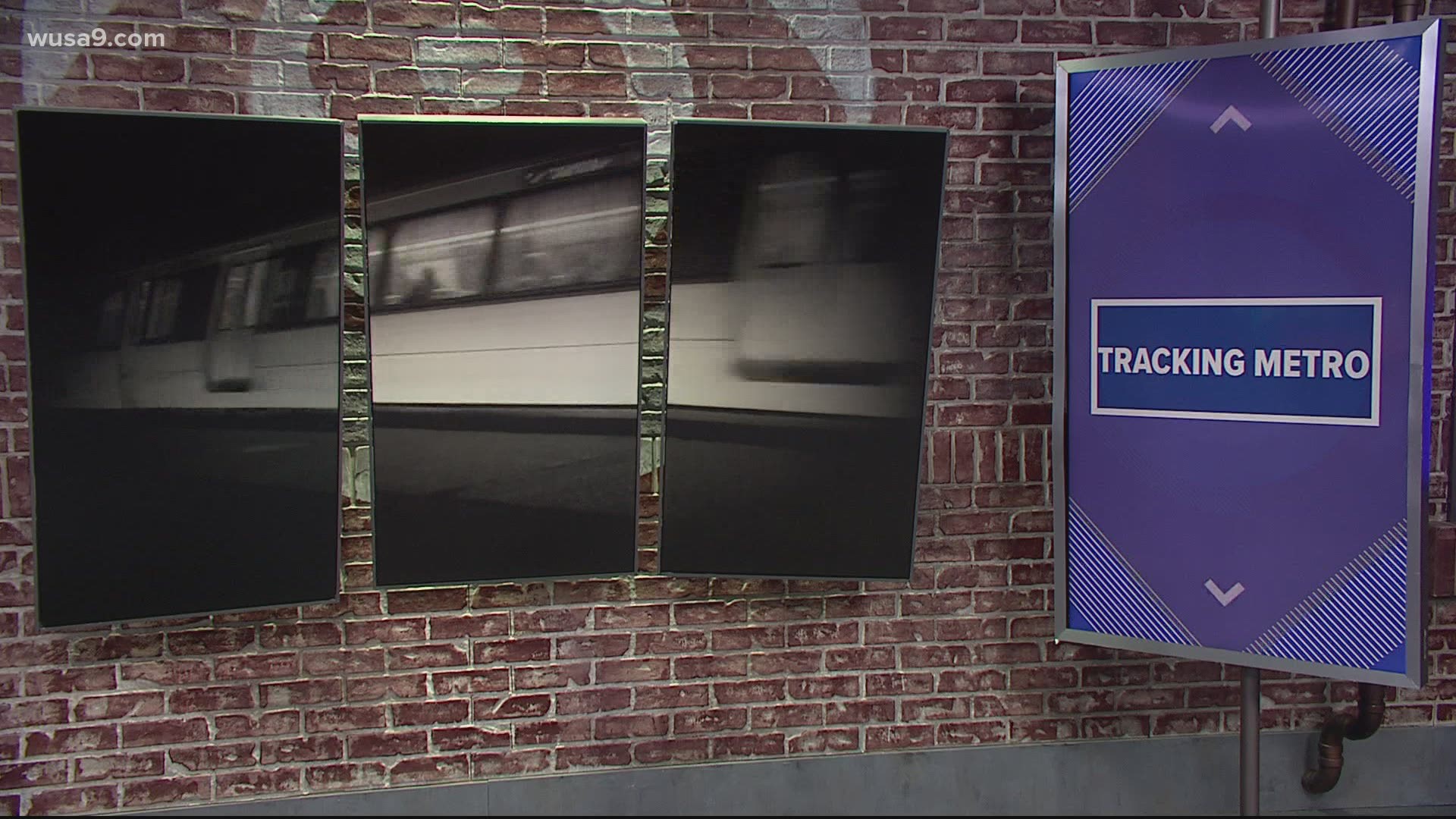WASHINGTON — DC's hospitality industry is concerned with massive cuts to Metro's rail and bus service could devastate workers and businesses.
On Monday, Paul Wiedefeld, General Manager and CEO of the Washington Metropolitan Area Transit Authority, announced the transit agency had to close a $500 million budget gap due to revenue loss caused by the coronavirus pandemic.
WMATA's new fiscal budget proposes condensing bus lines, closing train stations at 9 p.m., and eliminating weekend rail service.
RELATED: Metro considers closing 19 stations, slashing weekend service due to 'historic operating budget crisis'
UNITE HERE Local 25 represents more than 7,000 restaurant, hotel, and casino workers in the DC region. Local 25 Communications Director Benjy Cannon said many of those workers use Metro to get to and from work.
"It's catastrophic for the hospitality industry in Washington DC," he said. "Both in terms of its eventual recovery and also for our members' livelihoods and ability to get to work."
Cannon said many DC restaurants and bars are still reeling from WMATA's decision to cut back late-night rail service a few years ago.
"We're already in a situation where the city, by not having longer Metro hours, is limiting the growth of the hospitality industry and impeding workers' ability to commute to and from work," he said. "Cutting those hours back even further when our starting place is already so tenuous is really damaging."
Michael Haresign serves as chairperson of the DC Bar and Restaurant Workers Alliance. He also works at The Blaguard and Homestead in DC.
He said many restaurant and bar workers will find using rideshare companies, like Uber and Lyft, a costly alternative to Metro.
"We're working shorter shifts by and large [due to the pandemic]," he said. "So, that $15 Uber, which, when you're working a full eight-, nine-hour shift, is something that's much easier to handle than when you're working a five, six-hour shift."
Haresign said if WMATA's budget cuts come to fruition, it will have a larger effect on the greater DC economy.
"If you don't have people able to be entrepreneurs, owners of restaurants are having trouble getting their staff to and from work that disrupts the economic engine for this region," he said.
Metro added it may also close 19 of its train stations. Wiedefeld said the stations that could be affected are those that initially closed their doors at the beginning of the pandemic.
Cleveland Park resident Abigail Woodward said she is hopeful her local station stays open.
"We need to keep the Cleveland Park Metro open because we have a lot of businesses here that need the walk-in traffic," she said.
Cleveland Park restaurant, Dolan Uyghur, stands just steps away from the Cleveland Park Metro. Owner Hamid Kerim said some of his customers and workers use the service to get to his business.
"If this Metro closed, this [would be] like pandemic two for our business," he said.
RELATED: Metro riders fear the transit system may never recover if proposed cuts are enacted
WMATA's budget proposal for Metro has not been finalized. It will vote on its budget in March.
The transit agency said it is hopeful the federal government will provide it hundreds of millions of dollars to avoid major cuts.

